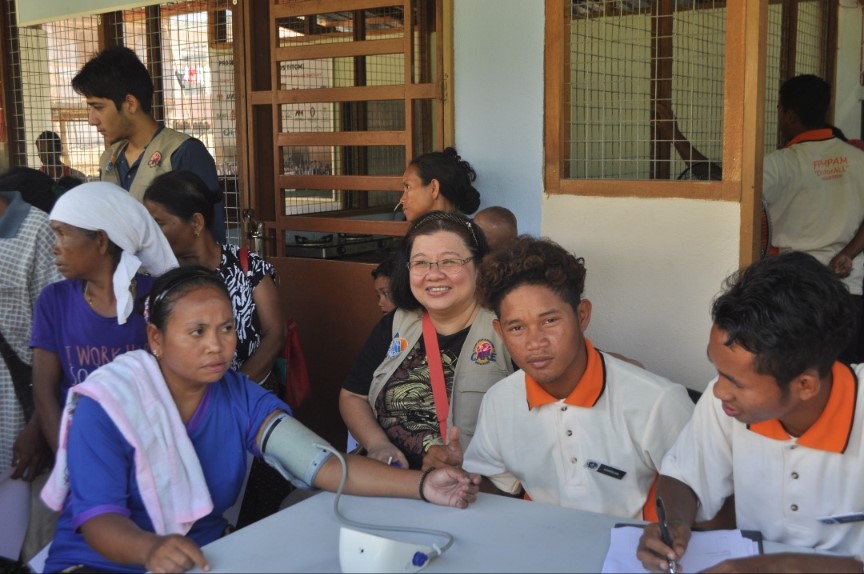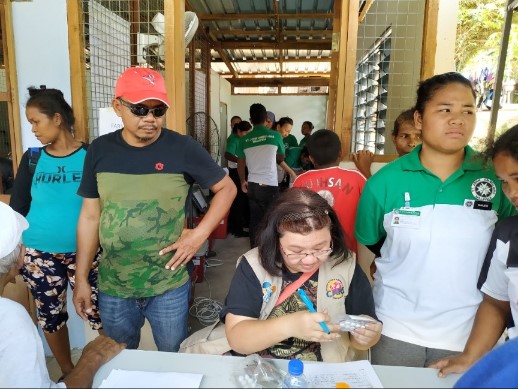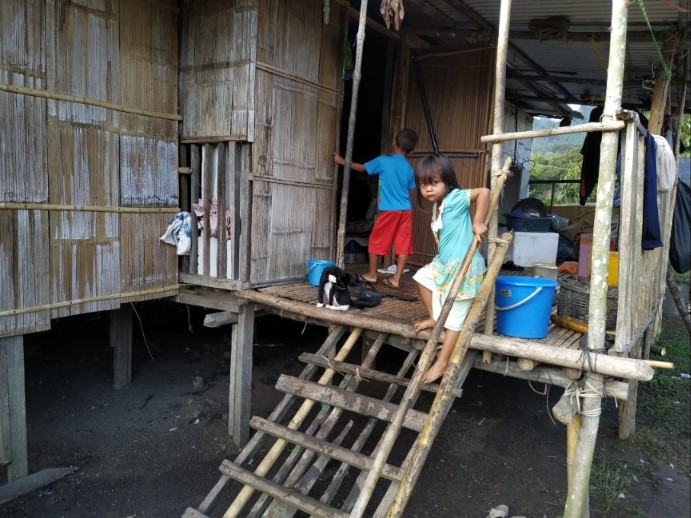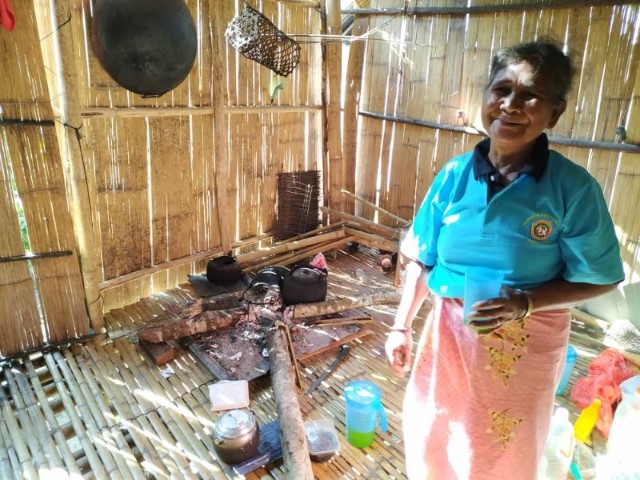KUALA LIPIS, Oct 3 — Babuk Keral stays in a small bamboo hut in the Orang Asli village of Kampung Dayok, Pos Lenjang, without electricity, piped water, a phone line, or a tarred road to the outside world.
The Semai woman of Bahai faith, who doesn’t know her age as she’s illiterate, was boiling water on wood fire because the gas ran out. Her cat called “Kucing” was sleeping on the warm embers; Babuk doesn’t like the village’s mangy dogs.
“I’ve never gone to the clinic; it’s too far,” Babuk, who has five children, told CodeBlue in her home here in Kuala Lipis, Pahang, last Sunday.
Kampung Dayok is about 30 minutes away from the Klinik Desa Pos Lenjang by motorbike, with potholes mostly dotting the difficult track through the jungle, according to doctors who run monthly medical missions here.
Three of Babuk’s children are married. Her 23-year-old son called Hidang Roslan stopped schooling at Form Four and now works in the fields, sometimes earning RM100 a month from selling paddy rice, but not making money at other times.
“If we have money, we’ll eat chicken or fish, but this is rare,” he said. “If not, we’ll usually eat pucuk ubi, pucuk paku, bayam.”
Other Orang Asli from the Semai villages in Pos Lenjang similarly told CodeBlue that they rarely eat meat, perhaps only once a month, and usually eat half of the produce from their red paddy, nuts, sugarcane, pepper or keledek fields, while selling the other half to outsiders when able. They get eggs from chickens they rear and sell the fowl when the animals have grown.

Immediately after the interview, Babuk visited the first clinic run by the Orang Asli Medical Post in Kampung Dayok, Malaysia’s first medical post for the indigenous that was opened by the Federation of Private Medical Practitioners’ Associations Malaysia (FPMPAM) last Sunday.
Semai youths from the community trained by FPMPAM in first responder treatment — who will soon run the Medical Post themselves 24/7 — had helped physicians from the association’s DRSforALL programme see over 200 patients at the Sunday clinic, an unusually large crowd compared to DRSforALL’s previous medical visits here.
Babuk collected some pain relief medicine for pain, swelling and joint stiffness.
“I like this programme,” she said.

Despite the woefully inadequate infrastructure in Pos Lenjang, a 46-year-old Sarawakian Orang Asli man called Bekraheed, who is married to a Semai woman, said what the indigenous really needed was rights to their own land.
“If the state government gives land, don’t give anything else also never mind,” Bekraheed told CodeBlue in an interview.
“Don’t give roads also never mind, don’t give electricity also never mind, just give the land title, enough. The Orang Asli have never had lights since before, no roads also we can live.
“Just give us land.”
Bekraheed, Orang Asli from Pos Lenjang, Kuala Lipis, Pahang
He complained about the lack of profitable economic projects in Pos Lenjang, pointing out that rubber trees given by the federal Orang Asli Development Department (Jakoa) three years ago did not do much to resolve the indigenous people’s financial problems.
Rubber trees planted by the Orang Asli themselves 10 years ago had already yielded fruit, while not everyone and not all villages received rubber trees from Jakoa, said Bekraheed, who lives in Kampung Kenderong.
Bekraheed questioned why valuable agricultural projects like madu kelulut, beef, or dairy were not given to the Orang Asli.
“Maybe they’re scared that when they give profitable projects involving large pieces of land and the Orang Asli make lots of money later, the Orang Asli will defend their big territory.
“When they just leave it and let us farm two to three small acres, they like that. They see that the forest is still vast, it’s easy for them to take. This is the reality.”

Bekraheed said unlike the indigenous in Sarawak who can enter joint ventures with companies on their native customary rights (NCR) land, the Orang Asli cannot do that here in Pahang because the state government considers the land state forest reserves.
He pointed out that in the nearby Betau, Felcra Bhd gave a rubber project to the Orang Asli, but when the indigenous people demanded proceeds, the federal rural development agency allegedly rejected the Orang Asli’s request because of huge debts.
“So the Orang Asli are stuck between the developer, state government, and federal statutory bodies,” Bekraheed said.
Pahang is governed by Barisan Nasional (BN), while Pakatan Harapan (PH) took federal power after winning the 14th general election in May 2018.
When asked if the new PH administration was similar to the previous BN government, Bekraheed said: “It’s difficult to say if they’re the same or not, but I can see clearly that after controlling the federal government for over a year, they haven’t done anything for the Orang Asli.”
He acknowledged that PH had various plans for the indigenous, such as restructuring Jakoa.
“But we don’t know when these things will bring an impact for the Orang Asli.”







